Earth
Sign up for our newsletter
We summarize the week's scientific breakthroughs every Thursday.
-
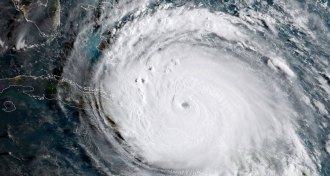 Earth
EarthIntense storms provide the first test of powerful new hurricane forecast tools
From Harvey to Maria, this year’s powerful hurricanes are giving scientists’ latest forecasting tools a trial by fire.
-
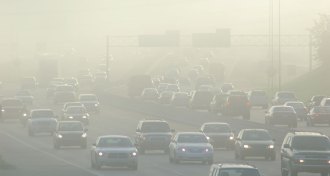 Environment
EnvironmentThe list of diseases linked to air pollution is growing
Air pollution levels have come down since the 1970s, but smog is being linked with a growing list of diseases, including dementia, obesity, diabetes and even Parkinson’s.
By Laura Beil -
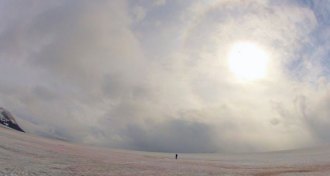 Microbes
MicrobesNow we know how much glacial melting ‘watermelon snow’ can cause
Algae that give snow a red tint are making glacial snow in Alaska melt faster.
-
 Agriculture
Agriculture‘Big Chicken’ chronicles the public health dangers of using antibiotics in farming
A new book takes a hard look at the chicken industry for its role in fostering antibiotic resistance.
-
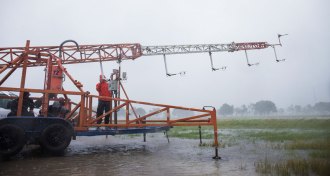 Earth
EarthHow hurricanes and other devastating disasters spur scientific research
Hurricanes such as Harvey, Irma and others have been devastating, even deadly, yet they drive our desire for scientific discovery.
-
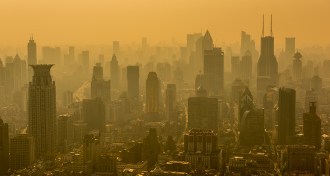 Environment
EnvironmentAir pollution takes a toll on solar energy
Dust and other tiny air pollutants can reduce solar energy output by as much as 25 percent in parts of the world.
-
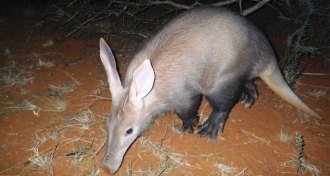 Climate
ClimateRising temperatures threaten heat-tolerant aardvarks
Aardvarks may get a roundabout hit from climate change — less food.
By Susan Milius -
 Earth
EarthNorth America’s largest recorded earthquake helped confirm plate tectonics
Henry Fountain’s 'The Great Quake' mixes drama and science to tell the story of the 1964 Alaska earthquake.
-
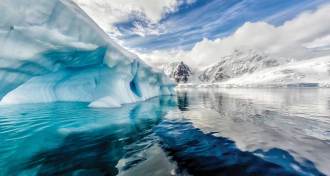 Oceans
OceansHow deep water surfaces around Antarctica
New 3-D maps trace the pathway that deep water takes to the surface of the Southern Ocean.
-
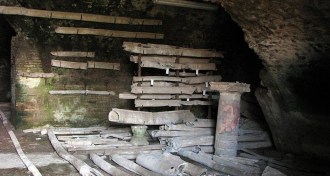 Archaeology
ArchaeologyAncient mud documents the legacy of Rome’s lead pipes
Researchers used lead levels in Rome’s ancient harbors to track lead pipe use and urbanization.
-
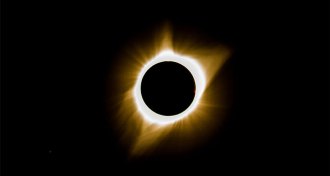 Astronomy
AstronomyOn a mountain in Wyoming, the eclipse brings wonder — and, hopefully, answers
Astronomy writer Lisa Grossman joined scientists on a mountain in Wyoming who were measuring the corona using four different instruments to try to figure out why it’s so hot.
-
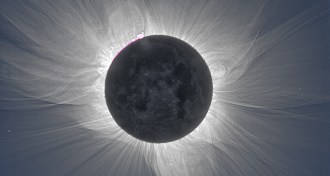 Astronomy
AstronomyDoes the corona look different when solar activity is high versus when it’s low?
Carbondale, Ill., will get two eclipses in a row, seven years apart — making it the perfect spot to watch the solar cycle in action.